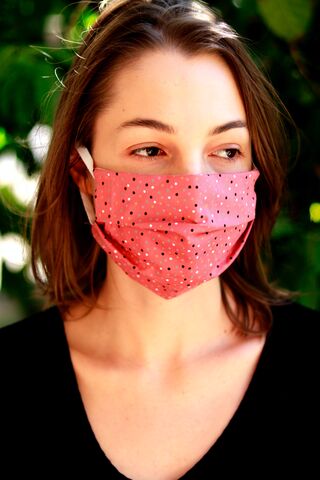Coronavirus Disease 2019
What We've Learned for COVID-19
Six months of learning about the latest pandemic.
Posted June 28, 2020 Reviewed by Kaja Perina

It’s important to look at the past so we can see our way clear to the future. Back in January, we didn’t know how the virus spread (primarily though close airborne/droplet contact). Wiping down your groceries has turned out to be way less important than avoiding crowded spaces indoors without masks.
We didn’t know how much kids or pregnant women were susceptible. Kids have a few late-onset complications, including COVID toes and a Kawasaki like syndrome, but the former is not dangerous and the latter is rare. Pregnant women are more likely to have complications and hospitalizations from COVID and should be protected. So far it doesn’t seem like there is increased mortality for pregnant women. This is a better result than seasonal flu.
Masks may be the most important cheap and readily available mechanism we have against the spread. If masks feel obstructive to you, I would recommend a standard surgical mask, which is light and now readily available online or at convenience stores.
Outdoor events will always be safer than indoor events. In Massachusetts, they tracked spread from outdoor protests and found no increase from baseline infection. While I don’t recommend large groups of any kind, outdoors seems to prevent super spreading events.
Any location where you are chanting, singing, shouting, or speaking loudly (like a restaurant or bar) is more likely to spread the disease than a place where folks are mostly quiet (like a movie theatre). No place will be 100% safe but judge accordingly where you want to go back as we reopen.
I have a number of patients who are avoiding any contact, getting groceries delivered, and have not gone back to take-out or walking in the park. There’s a bit of a compulsive germ-avoidance with some genuine fears…relatives in the house with pre-existing conditions. As society opens up, we must reckon with these issues.
While I’ve advised some reaching out into the world like take-out for cooked foods and not letting perishable groceries sit out for hours, the line for reasonable activity with the outside world is questionable. Your school district is much more interested in educating the kids and less interested in protecting the teachers and their vulnerable loved ones who live with them.
The truth is there is no COVID-safe activity going forward, only COVID mitigated, but the more your social group promotes regular testing for nursing home staff, little league teachers, NFL coaches and staff, any medical staff, and summer camp staff…the more we can lock away those who are infectious and prevent community spread.
I’m all in for these sorts of interventions. Any larger organization against regular testing has some serious problems and we need to reinvestigate their role in the pandemic.
For now… wear a mask in public. Cloth is good but a surgical mask (available on Amazon now, or at local convenience stores and CVS) is better, followed by a proper N95, which is still to find hard for medical professionals but I still know a few painters and masons who have them. The medical profession needs them dearly but the large hospital supply chain is better able to deal with this discrepancy than the local medical and mason union.
We also really need to keep nursing homes and the elderly siloed away for the foreseeable future. This means regular testing for nursing home staff and continued flexibility and imagination when it comes to visiting our elders. Keeping COVID from entering the nursing homes must remain a priority.
We can find a way through COVID-19. It means some continued sacrifice, public mask-wearing, and thinking clearly about school rooms and restaurants and bars. If we are smart, we can navigate these problems without too much loss. If we are reactionary, we lose more than we might have.
Copyright Emily Deans MD


